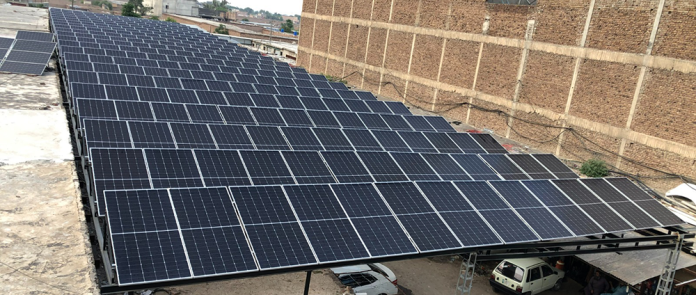Pakistan’s quest for sustainable energy sources has taken a significant stride forward with the increasing adoption of solar energy. With abundant sunlight throughout the year and a significant solar power potential, Pakistan is poised to tap into this renewable energy source more effectively than ever before.
Nestled in a region blessed with ample sunlight, Pakistan boasts approximately 2.9 million MW of solar power potential. The country’s geographic location ensures that around 95% of energy production occurs during daylight hours. With 185 to 290 sunny days per year, Pakistan’s solar energy potential is undeniable.
In recent years, solar energy has gained popularity in Pakistan due to rising electricity prices and frequent load shedding. Many households and businesses are now opting for solar panel installations to mitigate their electricity bills and ensure a steady power supply. While the initial cost of solar technology has been a deterrent, the decreasing global cost is making it more economically viable for Pakistan.
There are two primary types of solar installations: grid-tied (on-grid) solar systems and off-grid (standalone) solar systems. Grid-tied systems act as a backup source of electricity, connected to the local power grid, while off-grid systems are independent of the power grid and include battery storage for energy storage.
The solar energy market in Pakistan is experiencing rapid growth, with a compound annual growth rate (CAGR) of 49.68% expected from 2023 to 2028. Government initiatives are aiming to increase the share of solar energy in the country’s energy mix, with a goal of obtaining 30% of the country’s power from renewable sources by 2030.
Solar energy is not only clean and sustainable but also aids in reducing carbon emissions and combating air pollution. Solar panels have a long lifespan and require minimal maintenance, making them a stable source of electricity. Moreover, solar power can help stabilize the national grid and minimize the risk of blackouts.
Even small-scale solar panel installations can make a significant difference, providing alternative power sources during frequent load shedding. Despite the initial costs, solar panels can help households and businesses save money in the long run and reduce their dependence on traditional electricity sources.
Amidst this promising landscape of solar energy in Pakistan, companies like LONGi Solar Pakistan have played a pivotal role. Their contribution to the country’s energy sector has been subtle yet impactful. By providing high-quality solar panels and promoting sustainable energy solutions, LONGi Solar Pakistan is aiding the country in achieving its renewable energy goals. With a focus on innovation and reliability, LONGi Solar Pakistan is helping Pakistan pave its way to a greener and more sustainable future.
The future of solar energy in Pakistan is bright. With its vast solar potential, increasing adoption rates, and government support, solar energy is set to play a significant role in powering Pakistan’s future. However, challenges such as delays in tax policies and the taxation of solar panels, as well as the need for further incentives for net metering units, need to be addressed. Despite these challenges, companies like LONGi Solar Pakistan will continue to be instrumental in this journey, providing innovative and reliable solar solutions for a brighter, cleaner, and more sustainable tomorrow.
By: Usman Suhail
The writer is a seasoned PR professional who has a passion for writing about technology and cars.


